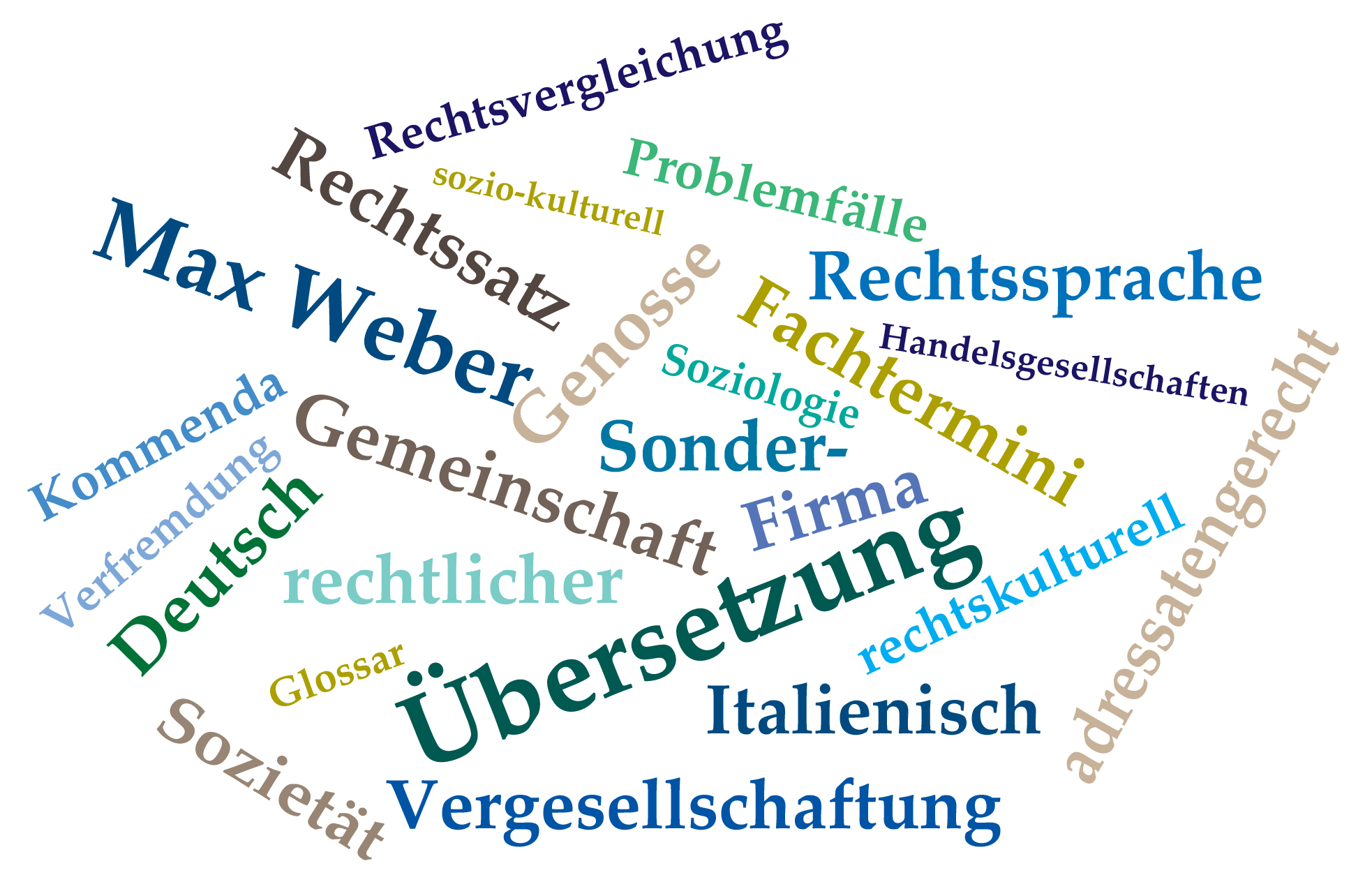Abstract
Technical terms in juridical translations often cause considerable difficulties. The translator needs to first understand the specific meaning of a term within a concrete juridical context in order to find its equivalent in the target text. However, a mere analysis of the legal systems involved is insufficient without a continuous reassessment of the terms within their legal-historical and socio-cultural context.
The focus of this essay lies on the translation of Max Weber’s Zur Geschichte der Handelsgesellschaften im Mittelalter (Sulla storia delle società commerciali nel Medioevo, Rome 2016). After outlining the work’s peculiarities, it is shown that Weber deliberately uses the term Genosse for different legal contexts in various historical periods. The same approach cannot be chosen in the target language, despite the rather large correspondence to the Italian term compagno. The analysis of other terms (Gemeinschaft, Rechtssatz, Firma, the prefix Sonder-) confirms that technical terms cannot always be translated uniformly within a text.

This work is licensed under a Creative Commons Attribution-NonCommercial-NoDerivatives 4.0 International License.
Copyright (c) 2022 Zeitschrift für Europäische Rechtslinguistik (ZERL)

